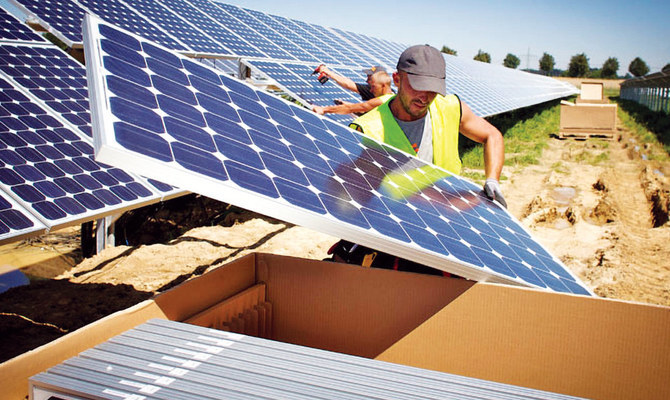Discover how long a house can run solely on solar power. Explore the factors that influence solar power usage and optimize energy consumption.
Introduction
Imagine the freedom of never having to pay an electricity bill again! With the increasing advancements in solar power technology, the possibility of powering your house solely on solar energy is becoming more and more feasible.
But how long can a house really run on solar power alone?
In this article, we will explore the factors that influence the duration of solar power usage, from the size of the solar panel system to the energy consumption patterns of a typical household.
Get ready to be enlightened about the amazing potential of solar power and discover just how long your house can go off the grid!
Factors Affecting Solar Power Usage
Solar power is an increasingly popular form of renewable energy, offering numerous benefits, such as reduced carbon emissions and potential cost savings.
However, several factors can affect the efficiency and overall effectiveness of solar power usage.
Understanding these factors is crucial in determining the feasibility and sustainability of relying solely on solar power for your energy needs.
In this article, we will explore the key factors that influence solar power usage and discuss their significance in optimizing energy consumption.

Energy Consumption of the House
Before delving into the various factors that affect solar power usage, it is essential to understand the energy consumption of your house.
The amount of energy you consume on a daily basis plays a vital role in determining the size and capacity of the solar power system you require.
Assessing your average daily energy usage will give you a baseline to work with when designing your solar power system.
Solar Panel Efficiency
Solar panel efficiency refers to how well solar panels can convert sunlight into usable electricity.
Higher efficiency means more energy can be generated using fewer panels.
Several factors affect solar panel efficiency, including the type of solar panels used, their conversion efficiency, and their orientation and tilt.
Additionally, shading and obstructions, such as nearby buildings or trees, can significantly reduce the efficiency of your solar panels.
Regular maintenance, including cleaning and inspection, is also crucial in optimizing efficiency and ensuring optimum performance.
Battery Storage Capacity
In solar power systems, battery storage plays a crucial role in storing excess energy generated during daylight hours for use during the night or in times of low sunlight availability.
The capacity of your battery storage determines how much energy can be stored and accessed when needed.
Different types of batteries offer varying capacities and lifespans, so choosing the right battery for your system is important.
Additionally, factors such as the depth of discharge and the efficiency of battery charging and discharging impact overall battery performance and longevity.
Sunlight Availability
The availability of sunlight in your geographical location directly influences the effectiveness of solar power usage.
Areas with more sunlight will generate more energy compared to regions with less sunlight.
Considering the seasonal changes in sunlight is also crucial, as the availability of sunlight can vary throughout the year.
It is important to assess your region’s sunlight patterns and factor them into your solar power system design to ensure optimal energy generation.

Seasonal Variations in Sunlight
Apart from the overall availability of sunlight, seasonal variations in sunlight can have a significant impact on solar power usage.
Factors such as solar insolation (the amount of solar radiation reaching the Earth’s surface), days of autonomy (the number of days a solar power system can function without access to sunlight), and the availability of backup power sources must be considered.
Designing your solar power system to accommodate these seasonal variations is crucial for an uninterrupted energy supply.
Additional Power Generation Methods
While solar power alone can be a reliable and sustainable energy source, combining it with other power generation methods can offer added reliability and flexibility.
Integrating solar power with a grid connection allows you to both consume solar-generated electricity and supply excess energy to the grid.
Hybrid systems that incorporate wind or hydropower can further enhance your energy generation capabilities, especially in regions with substantial wind or water resources.
Additionally, having a generator backup can provide assurance in situations of prolonged poor sunlight availability or emergencies.
Calculating Solar Power Sufficiency
To ensure that your solar power system meets your energy needs, it is crucial to calculate its sufficiency accurately.
Determining your energy needs involves assessing your average daily energy consumption and identifying peak usage periods.
Estimating solar power generation requires considering factors such as your geographical location, the efficiency of your solar panels, and any shading or obstructions.
Assessing battery capacity involves calculating the amount of energy you need to store for reliable off-grid usage.
Finally, evaluating backup power requirements entails determining the additional power sources necessary to sustain your energy needs during periods of limited sunlight or emergencies.
Case Studies
To better illustrate the practical implementation of solar power systems, let’s briefly explore a few case studies.
In Example 1, a small, energy-efficient house with low energy consumption demonstrates how even a modest solar power system can meet the energy needs of a small household.
Example 2 focuses on a typical family home, showcasing the importance of properly sizing and designing a solar power system to meet the demands of a larger household.
In Example 3, we delve into the concept of off-grid sustainable living, highlighting the possibilities and challenges involved in relying entirely on solar power.
Factors to Consider for Optimal Solar Power Usage
To optimize solar power usage in your home, several factors should be considered.
Investing in energy efficiency through the use of energy-efficient appliances and reducing standby power consumption can significantly reduce overall energy needs.
Proper sizing and design of your solar power system, along with regular system inspections and maintenance, will ensure efficient and reliable operation.
Monitoring energy consumption and adapting to seasonal changes in sunlight availability will allow you to make necessary adjustments and maximize the benefits of solar power usage.
Conclusion
While solar power is a promising and environmentally friendly energy source, there are several factors to consider to ensure its optimal usage.
Understanding the energy consumption of your house, solar panel efficiency, battery storage capacity, sunlight availability, and seasonal variations in sunlight are crucial in designing and maintaining an efficient and reliable solar power system.
By considering these factors and implementing smart energy practices, you can harness the full potential of solar power and enjoy the numerous benefits it offers.
Disclosure: As an Amazon Associate, I earn from qualifying purchases.


